Oil & Gas Leasing in Nevada is trouble for taxpayers. Host Steve Ellis and TCS Vice President Autumn Hanna are joined by Russell Kuhlman, Executive Director of the Nevada Wildlife Federation for a discussion about bonding requirements, federal royalty rates, and what constitutes a fair return for taxpayers.
Episode 53: Transcript
Announcer:
Welcome to Budget Watchdog All Federal, the podcast dedicated to making sense of the budget, spending, and tax issues facing the nation. Cut through the partisan rhetoric and talking points for the facts about what’s being talked about, bandied about, and pushed in Washington. Brought to you by Taxpayers for Common Sense. And now the host of Budget Watchdog AF, TCS President, Steve Ellis.
Steve Ellis:
Welcome to All American Taxpayers Seeking Common Sense. You’ve made it to the right place. For over 25 years, TCS, that’s Taxpayers for Common Sense, has served as an independent nonpartisan budget watchdog group based in Washington DC. We believe in fiscal policy for America that is based on facts. We believe in transparency and accountability because no matter where you are on the political spectrum, no one wants to see their tax dollars wasted. Today on the podcast, we are back with important news and analysis on the topic of getting a fair return for taxpayers when it comes to oil and gas leasing on public lands. In late July, the Department of Interior announced a proposed rule that would revise outdated fiscal terms of the onshore federal oil and gas leasing program, including bonding requirements, royalty rates, and minimum bids. As regular listeners know, TCS has been calling for oil and gas leasing reforms and new rules for a long time.
In fact, the inaugural budget Watchdog AF podcast back in February, 2021 was on this very issue. So this is welcome news, but we’re not resting on our laurels. We continue to sound the alarm over the summer and with several new state analyses on why the oil and gas reforms are desperately needed and stat. Billions of dollars of important revenue have been left on the table in states like New Mexico, Colorado, Wyoming, and Nevada. With our comment period for this new rule ending this week, we thought it would be a good time to give our listeners an update on our new reporting and fill them in on the new rule with an eye towards not only the federal, but the state impact of these reforms. Today here to walk us through all the good, the bad, and the oily is TCSs Vice President Autumn Hanna. And to help us understand the on the ground state impacts of it all, we have a special guest, Russell Kuhlman, the executive director of Nevada Wildlife Federation. Welcome back to the podcast Autumn, and so glad to have you joining us today, Russell.
Russell Kuhlman:
Thanks for having me here.
Autumn Hanna:
Thanks Steve. Glad to be back.
Steve Ellis:
Let’s dive in. Autumn, to read the press release from the Bureau of Land Management and the Department of Interior on this rule change would make anyone think we’ve finally won the battle. Have we?
Autumn Hanna:
Well, we’re certainly making progress, but the battle isn’t won yet. The important thing here is to get this proposed rule over the finish line. We need to codify the important updates we made last summer on federal leasing, and we need to really look at making sure that we have good reforms past the 10-year window. As listeners might remember, Congress last summer passed updates to royalty rates, rents, and minimum bids, and eliminated non-competitive leasing. And this was all part of the budget reconciliation bill, but now it’s the administration’s turn to codify these lease reforms. And in addition, tackle the important things that were left on the table like oil and gas bonding reform.
Steve Ellis:
It is good to hear that it’s a strong step in the right direction. And I know it’s been a long time coming to get us here. As we’ve discussed before, decades of leasing under outdated rates cost taxpayers billions of dollars in lost revenue, and that costs both state and federal taxpayers. And to underscore how long we’ve been talking about it, here’s 2021 Autumn on that inaugural budget Watchdog AF podcast on taxpayer losses.
Autumn Hanna:
The biggest loss to taxpayers in the current system is the royalty rate, which hasn’t changed for over a hundred years. So we’re looking at a 12 and a half percent royalty rate for taxpayers, and that’s the percentage that taxpayers get for the oil and gas extracted off federal lands. So we get a percentage of the value of that sale. And that’s something that any landowner would get for anything off their private property and royalty, that’s a common way to receive revenue, and it’s one that we think really needs to be addressed. Looking at that century old rate of 12 point a half percent, and we have calculated just in the last 10 years, we’ve lost over $12 billion by not updating that rate for onshore oil and gas to match what the current rate is for offshore oil and gas. So offshore oil and gas for the most part gets an 18.75% royalty rate.
Steve Ellis:
All right, now back to 2023 Autumn, I know we’ve released a few reports this summer examining the state federal nexus with the leasing program. Autumn, can you give me a quick rundown of our reporting?
Autumn Hanna:
Sure. It’s been a busy summer. We released our first oil and gas report in May focused on federal oil and gas develop in New Mexico. As the largest producer of oil and gas on federal land, leasing there truly illustrates how outdated leasing policies have cost taxpayers billions of dollars. What we found was that taxpayers had lost a potential revenue totaling $8 billion, and that’s from outdated royalty rates mostly, but also outdated rents and other leasing terms. That is important revenue we’re leaving on the table. And also because of the outdated bonding rates, which I’ll remind you were not included in last summer’s reforms passed by Congress, are putting taxpayers on the hook for up to a billion dollars in future reclamation costs if we don’t update those rates. Then in July, we released our second report on federal leasing of the summer focused on Nevada. And it was timed with the first lease sale of the year in the state.
As we’ll get into the podcast later on today, discuss more in Nevada and highlights with the system, I just want to remind folks that what we found is that taxpayers have been put on the hook for millions of acres of non-producing leases. And this prevents other uses for that land and limits returns for the public. We found more than 95% of acres leased for oil and gas production remain non-producing, and only 72 oil and gas leases in the state have ever entered production since 1953. That’s the first year we have records for, so I’m excited to talk more about Nevada with Russell later. But after Nevada, in late August, we released a report on Colorado. We found that outdated leasing terms, including the onshore royalty rate and rental rate have cost taxpayers more than $800 million in last revenue over the last decade and left us with nearly $400 million in potential reclamation liabilities from currently producing wells.
Steve Ellis:
So Autumn, on Colorado, didn’t you go there when we released our report? What was going on that was taking you to Colorado?
Autumn Hanna:
Yeah, that’s right. And I did head to Denver the last week of August when the Bureau of Land Management was holding public meetings on the new rule that we’re talking about today. I was able to talk to folks on the ground and share the results of what we found in Colorado. But we didn’t stop with Colorado. In fact, after that in September we released a report on Wyoming where there was a lease sale in Wyoming on September 5th. And Wyoming contains one third of all federal land. It’s about 7.7 million acres that’s leased for oil and gas development in Wyoming. It’s the second-largest producer of oil and gas on federal land. Like New Mexico, we see some of the largest numbers in lost revenue in Wyoming. We calculated taxpayers have lost $3.8 billion in potential revenue and have left $88 million in potential reclamation liabilities in the state. And our reports aren’t done. Our next report on federal leasing is set for later this month. We’ll be focusing on Utah where there’s a lease sale set for September 26th.
Steve Ellis:
Wow, that is a lot of reporting. And now I want to spin back to Nevada and our report. This week, we got a shout-out on some of the research we did on leasing by Nevada Congresswoman Lee in a house Natural Resources committee hearing.
Rep. Susie Lee (D-NV):
Complimenting GO’s investigation on this front, The Taxpayers for Common Sense recently did their own deep dive into the federal onshore oil and gas program. And once again, I’d like to ask, would anyone know or be able to guess what percentage of oil and gas leases issued in Nevada since the 1950s have ever actually produced oil or gas? Again, I’ll help you with that answer. It is 0.3% since 1953, or 72 out of 22,141 leases issued in the last 70 years. Not 3%, not 30%, 0.3% producing leasings. These findings make it painfully clear that Nevadans are not getting anywhere close to good return on investment with this program as it exists, nor are the American taxpayers who have lost $34 million from outdated and below market leasing terms in Nevada just in the last decade alone.
Steve Ellis:
Representative Lee is right. That is bonkers and worth repeating. Kudos to you and the TCS team, and what a great way to lead into our special guest Russell Kuhlman from the Nevada Wildlife Federation. Russell, I think it’d be really great to bring in your perspective here, but first tell us a little bit more about Nevada Wildlife Federation, the group that you run.
Russell Kuhlman:
So we were actually formed in 1953, which makes us the oldest conservation based organization here in Nevada. And given that 87% of Nevada’s lands are public and managed by the federal government, a lot of our work is focused on making sure that all stakeholders are engaged on how we use those lands. Specifically, the BLM manages 67% of those public lands. And so as we all know, the BLM has to manage for multiple use. That includes fossil fuel development, that includes timber mining, but also outdoor rec. And so with the Nevada Wildlife Federation, our real core messaging and goals are to be the voice for that outdoor recreation part of public lands and make sure we have a seat at the table. And when it comes time for decision makers to come up with ways on how to manage those lands, our voice is heard during those conversations.
Steve Ellis:
Great. And Russell, so in your experience, what were some of the negative impacts of oil and gas leasing rules in Nevada? And is this proposed new rule welcome to you and the Nevada Wildlife Federation as well?
Russell Kuhlman:
It’s absolutely welcomed and frankly long overdue. We are seeing a unprecedented amount of interest in, at least in Nevada’s public lands, and I think public lands in general throughout the west, we see an uptick in outdoor recreation within the state. And for a very long time, the Nevada oil and gas leasing process through the BLM tied up a lot of those lands that could be prioritized for other uses that could in fact bring money into our state. And as we’ll get into it here in the podcast, there is no oil and gas really in the state to be profitable.
So why are we prioritizing these leases to those companies where they just sit idle? As Autumn said, 95% of the leases don’t have an oil derrick or any drilling on them. They just sit there as oil and gas leases. And what that does is tie the hands of the BLM and prevent them from going into improve the habitat, improving public access for outdoor recreation and prioritizing other uses that could be developed on those lands or enjoyed by other stakeholders. But with the tie-up of oil and gas leasing in the state, that doesn’t happen.
Steve Ellis:
Right, because I mean it’s set aside for that and so it’s not available for these other uses. So tell me more about the speculation, these squatters, and the issue of low potential lands. I understand this is an important issue for one of your US senators, Senator Cortez Masto, right?
Russell Kuhlman:
Absolutely. And to kind of give your listeners a frame of reference of just how low the interest is from the oil and gas leasing companies here in the state, our quarter to sale this year that happened in July, the BLM offered 5,000 acres of mid to high potential land for oil and gas development, and they received zero bids period, which means of all the uproar we hear from the fossil fuel extraction companies of how they need to have more land to develop and how they don’t have enough land already, to have them bid on 0% of land that has been identified, the very small portion of land that’s identified here in the state as oil and gas potential, they still received zero interest. And the critique that they said that the oil and gas companies to the media is they didn’t bid on them because the BLM withdrew 60,000 acres of low potential lands, and it wasn’t enough for them to invest in.
That logic does not make sense to me where you’re not invested in land that has potential because you couldn’t invest in land that doesn’t have potential. That narrative just doesn’t hold water. For me, for my organization, and hopefully I think for a lot of Nevadans. And so that’s why our senators are wanting to be engaged. And with Senator Cortez Masto’s End of Speculative Leasing Act, she introduced it in the last Congress and she’s introduced it in this Congress. And hopefully with some help, that will become regulation and really get rid of this red tape that prevents the BLM from managing the land to the benefit of Nevadan and stakeholders, and releasing it from these oil and gas companies who will buy it up for pennies on the dollar to be honest with you. For a long time it was $2 an acre minimum bid, and luckily that’s been increased, but for companies making billions and billions of dollars of profits, it’s not a big investment for them to spend two bucks an acre, and they’re still not doing it because they know there’s no interest here.
So with that legislation from Senator Cortez Masto and co-sponsored on the house side by representative Susie Lee, that’s the regulations that I think we need to see in Nevada and hopefully other spaces throughout the west that will free up lands to realize their full potential and have the BLM be able to have the authority to develop those lands. And this actually really already taken place and it’s shown to be very positive. The last couple of BLM lease sales in Nevada, they have withdrawn low potential lands, very similar to what the End of Speculation Act would do. And I have not heard a whole lot of pushback from the opponents of her bill on why this is so detrimental. Because honestly, I don’t think it is because they’re not going to be investing in it regardless.
Steve Ellis:
Right. I kind of heard in my head when you said that there were zero bids, I heard that sad trombone going off in there. And so it’s ridiculous and it’s certainly a circular argument that the industry opponents seem to be making about not having enough land, that had low potential production, not enough of that low prudential production to get them to actually to bid. And Autumn, this isn’t the only legislation that’s going on. And some of the other work that we’ve been doing, right?
Autumn Hanna:
Yeah. The state of Nevada and the senators in the state have been real leaders on oil and gas reform. And I think just to further comment, just for a quick second on that lease sale, I mean in getting to these reforms and what we saw with those zero bids was I think the result of ending things like non-competitive leasing that we talked about. So before these speculators could come in for zero bids the day after a lease, and that’s how we see so many millions of acres in Nevada tied up. And when you add elimination of non-competitive leasing, we may be getting on the right track to really ratcheting down this speculative leasing and holding of land. And I think the other reforms that Russell spoke to about the bill that Senator Cortez Masto has done are important steps to really make sure that we do end the speculation once and for all.
But there are other senator from the state Senator Rosen we’ve done a lot of work with as well in oil and gas reforms. She co-introduced a bill on the fair returns for Public Lands Act that would have raised the royalty rates, the rents and minimum bids. And this legislation was introduced before we saw last summer’s reforms, and it’s a bipartisan bill introduced with Senator Grassley of Iowa. We worked for a long time with both of those, Senator Grassley and Senator Rosen on that bill, and they really recognized the need to update these rates.
Before last summer’s update to the royalty rate, that royalty rate hadn’t been touched since 1920. States and private landholders were charging much higher rate. The federal government was still charging 12.5% and now we’re at 16.7%, which is a step in the right direction. And that’s really largely in part thanks to the work that Senator Rosen and Senator Grassley did in getting bipartisan support for those reforms and laying the groundwork for the reforms that were adopted last summer in the budget reconciliation bill. So updating those rates and that lost revenue was an important issue to Senator Rosen, and the leadership out of Nevada has been just amazing. And having bipartisan support for these oil and gas reforms I think have been really key in getting it across the finish line. And as Russell said, a lot of this stuff isn’t that controversial when it comes down to it. I mean, these are basic common sense things. We let rates sit untouched for decades. And so it’s something that has the support of both Republicans and Democrats.
Steve Ellis:
You’re listening to Budget Watchdog All Federal, the podcast dedicated to making sense of the budget, spending, and tax issues facing the nation. I’m your host Steve Ellis, and we continue now with TCS Vice President Autumn Hanna and Nevada Wildlife Federation Executive Director Russell Coleman.
So we were just talking about the bipartisan support for the oil and gas leasing reforms, but I think that you had something else that you wanted to point out, Russell.
Russell Kuhlman:
Yeah. Autumn mentioned with the increase on those rental rates and royalty rates, specifically the royalty rates, really the oil and gas industry has really had a good deal going at that 12% or 12.5% for so long. And I did hear some opposition to increasing that, but when I found out that state land in say Texas was charging over 20% for their royalty rates and the federal government was only charging 12 and they wanted to increase it to the 18 or just over 18, that really opened my eyes of how big of a sweetheart deal oil and gas companies were getting on federal land compared to the rates they’ve been getting charged on state and private land for decades and decades. So really, these updates weren’t a big surprise or really the hammer that the oil and gas industry threatened that it was going to be to oil production. Really, it just brought up to what they’ve already been paying for other land throughout the country.
Steve Ellis:
Well, we certainly noted that Texas is a noted hater of the oil and gas industry, and so I’m sure that that’s why they have such a high rate. Obviously I’m being sarcastic, but so yeah, it’s certainly getting it closer to a market rate or what even that we charge for offshore oil and gas development in federal waters makes sense. And even that 16%, it’s closer, but it’s not even hitting parody. And you’re there on the ground, Russell. And one of the things that I noted is that you all have been talking about the support for these reforms in the general public, and I recently saw that you were promoting a poll that was done by Colorado College about support for reform. Can you fill us in on some of the things came out of that poll?
Russell Kuhlman:
Yeah. Honestly, not surprisingly, 73% of Nevadans support only allowing oil and gas companies to drill where there’s a high likelihood of oil and gas. And the best analogy I’ve kind of come up with was if I was in my house and going to make a sandwich, the first place I was going to look for those resources like the bread and the mayonnaise and the ham would be my kitchen. And I wouldn’t get upset if I went into my laundry room and got upset that I wouldn’t find those things and didn’t have access to all those resources in my laundry. And that’s kind of the analogy I see in my head of what these oil and gas companies are doing where they’re kind of throwing up their hands and saying they should have all public land open for oil and gas development when there is an oil and gas under every parcel of land.
And a lot of these areas can be better used for outdoor rec and renewable energy in our state. Those are two issues that are highly on the radar of Nevadans. And I think a lot of Nevadans support the fact that where there are resources, let’s develop them, but where there are not resources for fossil fuels, let’s prioritize other uses to benefit the state and its residents. And then closely following that, 72% of Nevada’s voters prefer leaders place more emphasis on protecting water, their air quality, the wildlife habitat and recreational opportunities. When the bonding issue came about and we realized that we were losing roughly 40 to 50 million acres through outdated bonding reform, that’s a substantial amount of money. However, Nevada’s outdoor recreation economy every year accounts for three to $5 billion in our state. And so that’s where we need to be prioritizing. And I don’t think it’s shocking to anyone to realize that renewable energy is going to be huge here in the coming years for Nevada. We’re number one or two in solar potential and number one and two in geothermal.
So those are the issues we need to be talking about, not letting oil and gas companies drill where there’s nothing but dust. And let’s prioritize those areas for the betterment of Nevadans and not keeping them on lockdown by the oil and gas companies. And then lastly, almost a hundred percent, it was 91%, but 91% of Nevada’s voters support requiring oil and gas companies to take care of the messes they make themselves and not put it on those taxpayers like us. Pretty simple common sense in my mind. If you make a mess, you’re responsible for cleaning it up. You can’t blame it on someone else and then leave. So that’s some of the high figures that we saw. And just goes to the point I tried to make earlier. A lot of this is just common sense. And I think the Colorado poll is just one more piece of evidence proving that Nevadans base their decisions not common sense, and that’s why we saw at least strong poll numbers come out of that.
Steve Ellis:
Well, Russell, at TCS we’re definitely for common sense. It’s right there in our name. And I have to agree with you. And what’s next for you all, Russell? What’s next for Nevada Wildlife Federation on oil and gas reforms?
Russell Kuhlman:
Obviously it’s making sure all of this crosses the finish line. Passing the IRA was a huge victory for us and we definitely took our victory lap in celebrating all the things that we’ve been trying to do for the last decade or so. But making sure that bonding is included in the current rulemaking and all of things that go with that. But really after that is completed, the next steps are going to be to work with the BLM and work with our state wildlife agencies, and kind of prioritize the best uses for land throughout the state. The latest USGS survey came out last year, two years ago saying that we’re losing roughly 1.3 million acres of sagebrush ecosystems throughout the west. And Nevada is known as the sagebrush state, and a lot of that loss is due to wildfires and habitat degradation and decline, and all of that.
Again, 87% is happening on publicly federally managed land. And so really just working with those agencies to best find out how to get the highest rate on return. Because it’s not oil and gas leasing. We figured that out long ago, and now it’s just determining what uses are going to be beneficial for Nevadans. But for the longest time, step one was clearing up all this red tape that the oil and gas companies were leaving here in the state by leasing land, not developing it and tying it up and prohibiting really the BLM to do things that are much needed. So in the future, again, it’s just going to be our organization working with those land managing agencies and the state, and trying to be the voice for outdoor rec and the people that come to love our public lands.
Steve Ellis:
Great. I mean, that all sounds really great and interesting. And so same to you, Autumn. What’s next for TCS on this?
Autumn Hanna:
So as we’ve mentioned, the comment deadline for this new proposed rule is this week, and we’ll be submitting our formal comments to the Bureau of Land Management on the specifics in the rule. Many of the things that we’ve been calling for years are included and it codifies those reforms. So they’re taking their step now that following up on what Congress did last summer, but then also in addition to codifying those increases to royalties and rents and minimum bids and eliminating non-competitive leasing, things that Congress already took action on, they are addressing this big gap that we’ve been talking about. All of us on bonding and oil and gas bonding to make sure that taxpayers are protected from industry, just sort of leaving the well sites and the cleanup and reclamation costs to taxpayers passing those on. The bonding rates haven’t been updated since the 1960s, and it’s left us with huge liabilities that are passed to taxpayers.
In the infrastructure bill that we passed a few years back, there was a lot of money included for abandoned well reclamation, and that is important to reclaim those wells. That’s a huge liability for communities, it threatens our land and water resources, and needs to be addressed. But we certainly shouldn’t be having taxpayers pick up that tab, and that’s because we’ve left these rates untouched. Taxpayers are stuck with that tab, and we have to come in and provide that money to communities to clean up when we weren’t the ones selling the oil and gas for profit before.
So industry, that’s a cost that they’re doing business and they have to reclaim those wells and should be required to pay for it. So updating those rates is a really high priority for us and getting that across the finish line in this rule. And we’ll also be calling for a higher royalty rate. That’s something we’ve said all along. We think 18.75 is the rate, and currently Congress passed a rate of 16.67, certainly better than the 12.5%, but we are on record and have plenty of evidence to support an 18.75% rate. We think that’s in line as Russell mentioned, again, with states and private lands and Texas that have a much higher rate. We think the market can handle that and that the federal government is just giving up valuable revenue that we should have.
Russell Kuhlman:
And then I just want to add some more detail. What the Nevada Wildlife Federation plans to do in the future is similar to what we’ve done since I took over in 2020, and that is to be a resource for citizens and people wanting to know more about this issue on how they can be involved. The great thing about these lands being federally managed is that we the public have a say and we get to comment on how we manage those lands. So every four years here in the state, just like every other western state, the BLM holds those lease sales. And it is part of my job and part of my organization’s mission to provide comments and give directions and our opinions on what they’re doing and how they’re doing. And you don’t have to be a 501C-3 organization to do that.
You can be a public citizen. And we want to be able to provide those resources to individuals who care about how our lands are managed and kind of be a one-stop shop on making sure that they have the access and resources in order to do that. My personal opinion, and maybe you could argue this, the general public could, but I think the BLM does listen to those comments. And proof of that is them not selling those low potential lands even before they were acquired by law. And that was a comment we put in almost every one of our lease sale comment was, why are you doing this? And I think, or at least I like to think that they listened and were able to not do that because they heard it from enough people saying that. And so going forward, that’s still going to be the core of the Nevada Wildlife Federation, is being that go-between and providing those access and resources for the public to comment on how their land should be managed. And hopefully they want it managed using common sense. And that’s where I try to be.
Steve Ellis:
Yeah, I mean, imagine that public comments are for the public and so yeah, certainly you want to have an engaged citizenry. It’s something that we strongly believe at TCS and we put these materials out there for people to inform themselves and engage with their government. And that’s what we really want. We’re always talking about making government work for taxpayers, and that’s really one of the main things for us. Autumn Hanna, Russell Kuhlman, thank you for joining me on the podcast today.
Russell Kuhlman:
Glad to be here. Glad to have this conversation.
Autumn Hanna:
Thanks for having us.
Steve Ellis:
Well, there you have it podcast listeners. It’s nice to see a change that won’t leave taxpayers finishing last. You can find gaming the system to oil and gas leasing in Nevada’s trouble for taxpayers and other reports that Autumn mentioned earlier in the podcast at taxpayer.net/reformleasing. This is the frequency, mark it on your dial, subscribe and share. And know this, Taxpayers for Common Sense has your back, America. We read the bills, monitor their earmarks, and highlight those wasteful programs that poorly spend our money and shift long-term risk to taxpayers. We’ll be back with a new episode soon. I hope you’ll meet us right here to learn more.

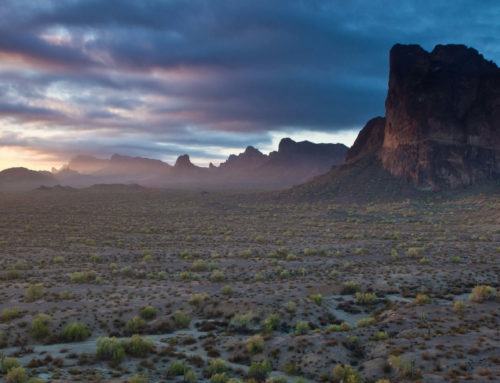
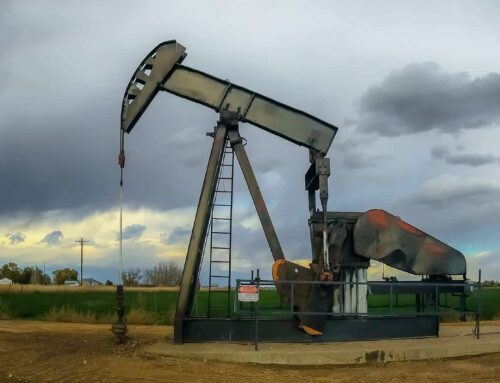
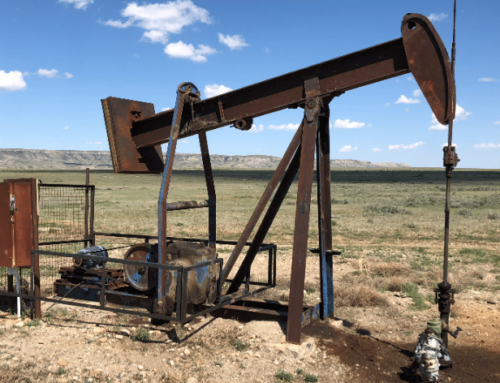
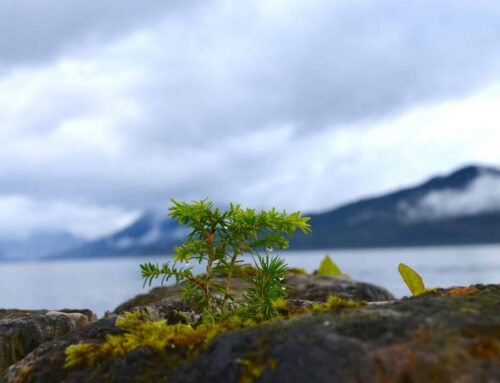
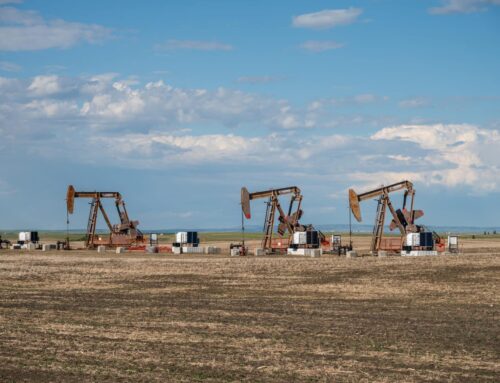
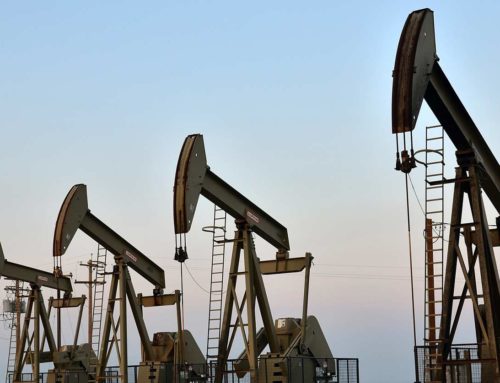



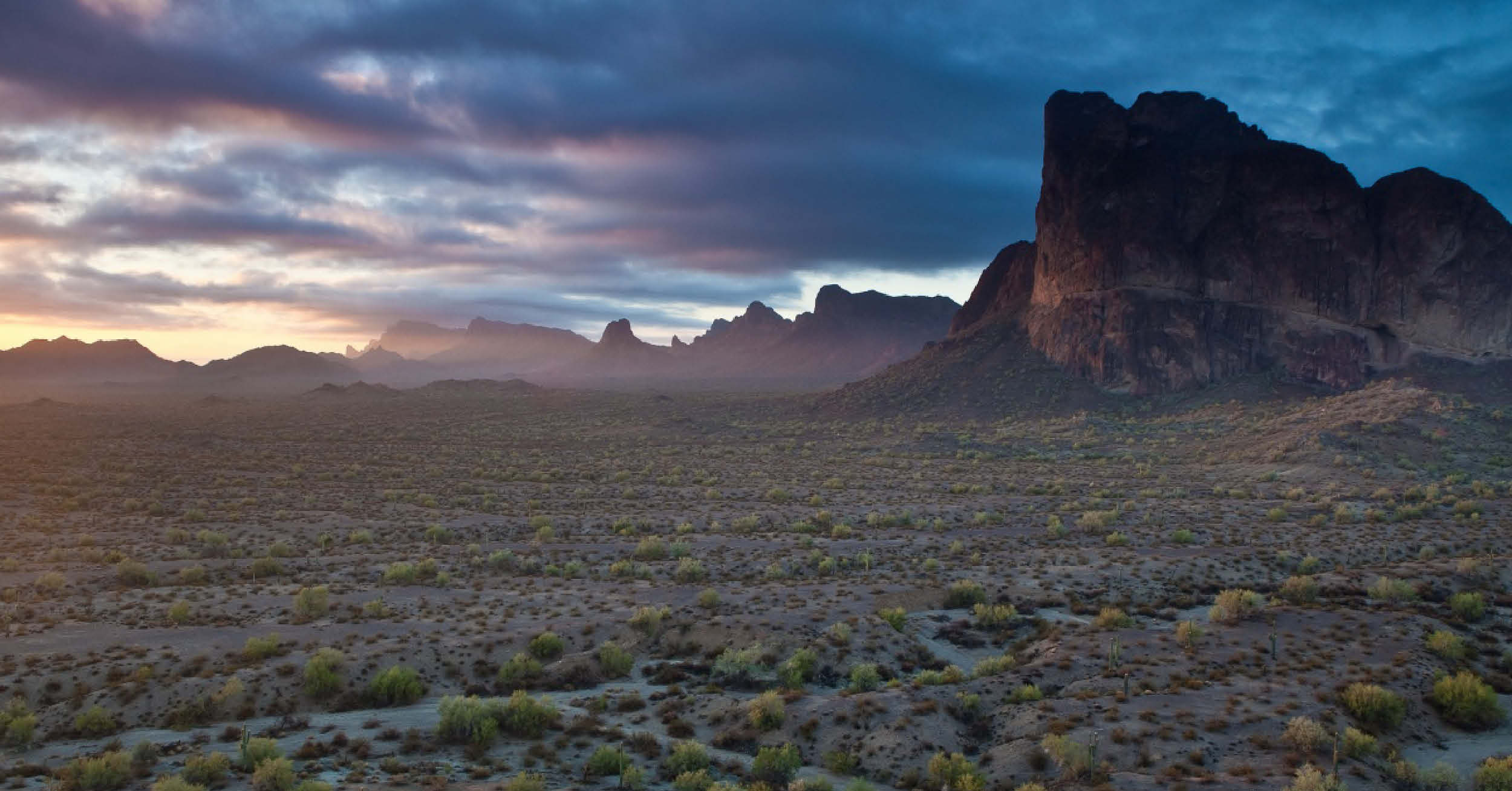
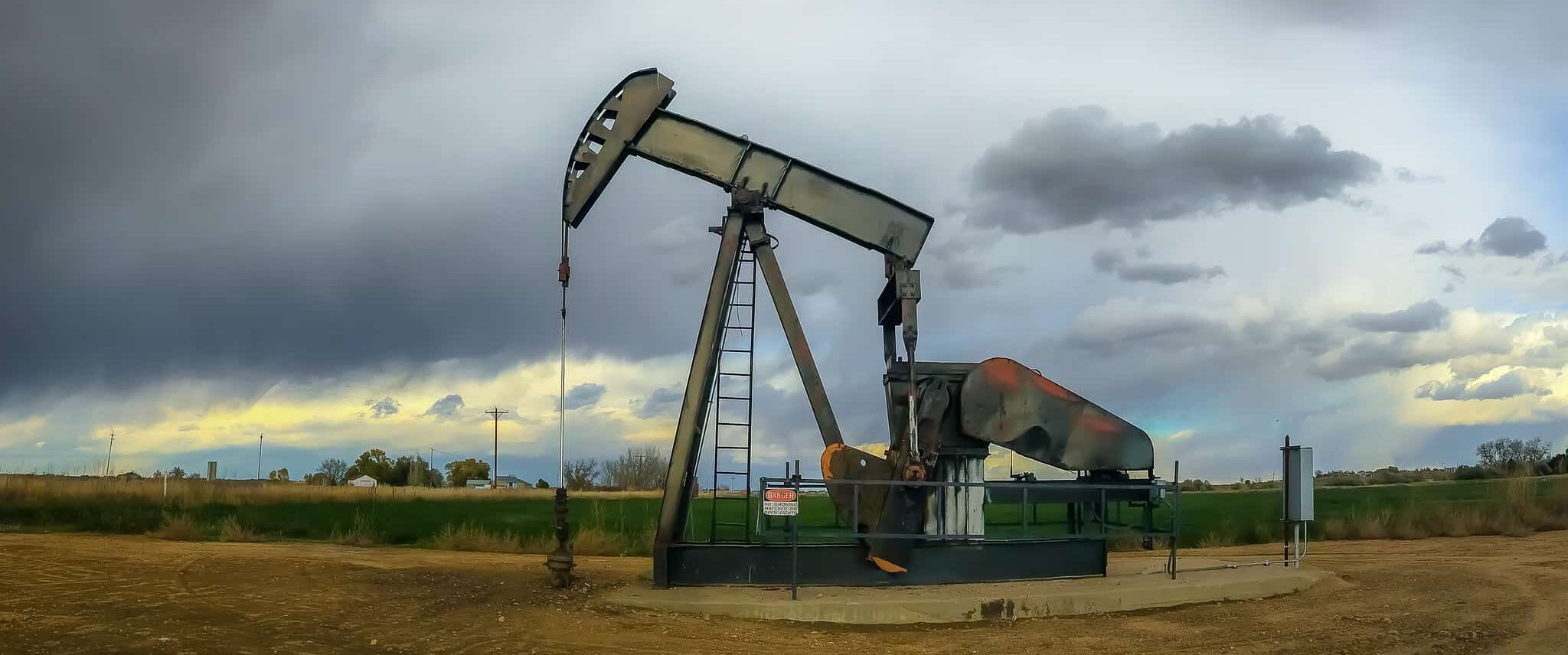

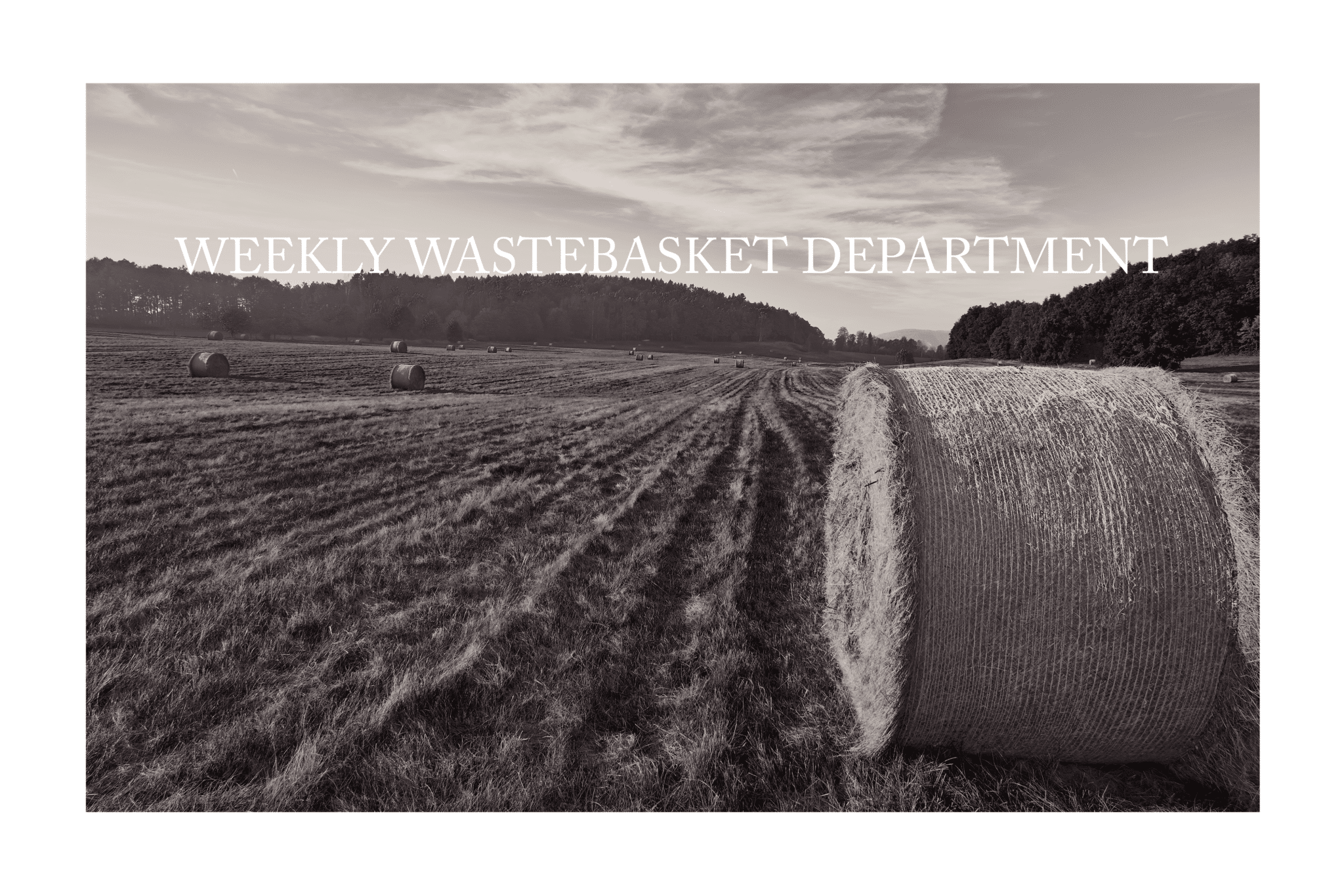
Get Social